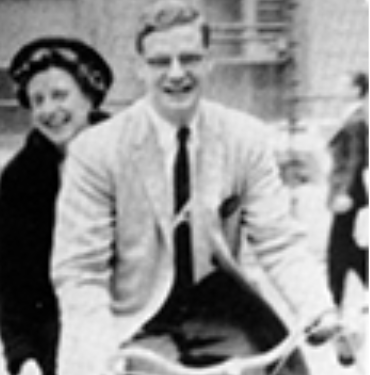Alice Bolandhemat Nearly 3 decades ago, my mother graduated from the same high school as my oldest sister did 3 years ago, the same high school our middle sister will this spring, and the same high school I will in 2020. Certain aspects haven’t changed since my mother entered the halls of Latin: the unique concept of project week, the red lockers, and the fascinating Nazi Mind history class. However, since then, Latin has added many new traditions such as handing out boathouse jackets to freshmen, expanding the grade sizes from roughly 70 to 120, and the distinctive block schedule. While the school is constantly evolving, some teachers who have taught at Latin since before my mother began, have remained staples in the Latin community. Yet it seems that every year, more and more of those teachers retire. When they leave, does the Latin legacy leave with them? Ms. Dorer, a vital member of the Latin community for longer than many can remember, is the faculty head of several clubs and organizations at the school. However, in her first few years of teaching, she became inspired by those who were very similar to what she is now: an integral member of the community. “Greg Baker, a beloved member of the faculty, taught English and coached swimming. He affected the lives of so many at this school,” explained Dorer. You may recognize his name by what is written outside of the pool, which is named after Mr. Baker. “He taught the Ulysses English course, which was one of the most highly regarded classes to ever be taught here,” she continued, “With his senior students, ‘senioritis’ didn’t exist. They never wanted to skip the class because of how fascinating he made it.” “One of my favorite examples that speak to Greg’s character is when I took students to Soviet Russia for project week. One of the items on the list of things we were not permitted to bring was the ‘Ulysses’ novel. However, some of his students on the trip loved the class so much that they attempted to bring the book with them before it was confiscated,” said Dorer. Teachers as adored as Mr. Baker all tend to have one characteristic in common: they are supportive. “Mr. Baker asked a lot from his students. He held extremely high standards, but he wasn’t impossible. He cared so much about their wellbeing. Every year, the day before the Nazi Mind Nuremberg trial, Coach Baker would cancel swimming practice so that students weren’t forced to choose.” Mr. Baker unexpectedly passed away while he was still teaching at Latin in 2000. In a way, “the void that arose when he passed away could never be filled. His Ulysses class could not be taught by anyone else, which was saddening, but understandable. Greg was so influential that when he passed away, he left this gaping hole. But I know he did not intend for his role to be unfillable” exclaimed Ms. Dorer. Mr. Baker’s Ulysses’s class was discontinued. However, he was a founding member of project week, which is very much still prospering today. At Latin, we take part in many activities and classes, but don’t necessarily know their origins. Project week is an example of how Latin students and faculty members have not only continued traditions, but expanded them in a way that provides new backgrounds and perspectives. “Project week has always supported the central premise that all education doesn’t happen within the confined walls of Latin,” indicated Dorer. When my mother attended Latin, project week had a very limited amount of destinations, but with the creative minds of Latin’s current faculty, project week continues to grow each year. In addition to project week, classes like AmCiv originated from retired faculty members. “Mr. Sommers, the former history department chair, was actually the man who hired me,” said Dorer, “he, along with Dr. Dolezal who taught at Latin for over 50 years, started the concept of the history and English course: American Civilization. I found the idea to be incredibly relevant, considering all students must at some point take American history in their high school career. The class was successful because of how passionate Mr. Sommers and Dr. Dolezal were about the subject matter as well as how engaged each student soon became” What we now know as a very popular history and English class began long before any current students started at Latin. The tradition of the class was carried on. Although several values and principles have stayed true at Latin over the years, many have also changed. “The class was started by Dr. Dolezal and me, EuroCiv, was unfortunately discontinued after he retired. As upsetting as that was, it is important to make room for new classes and student interests, like American Politics. There is value in continuity and change,” said Dorer. A significant amount of teachers have been difficult to replace, but each year, the new faculty members and students bring their own perspective to the school. Continuing on the legacy of the foundation that has been built by past teachers like Mr. Baker, along with current faculty like Ms. Dorer, Mr. Fript, Ms. Ross and Coach Bower, is crucial. Yet with each passing day, Latin evolves into a better community, while still holding true to our core values. ]]>
Categories:
Latin's Institutional Memory
November 15, 2017

1
0
More to Discover






















































dmarshall • Nov 18, 2017 at 2:06 pm
I know I speak for Ms. Stephens in expressing how honored we are to carry on traditions like AmCiv that were created by Mr. Sommers and Dr. Dolezal. As you point out, schools evolve. There is indeed value in continuity and change. However, teachers like those you’ve mentioned—and Ms. Dorer is a perfect example—leave indelible marks. Thank you for taking the long view that Latin, in the end, isn’t just a place. It’s people.